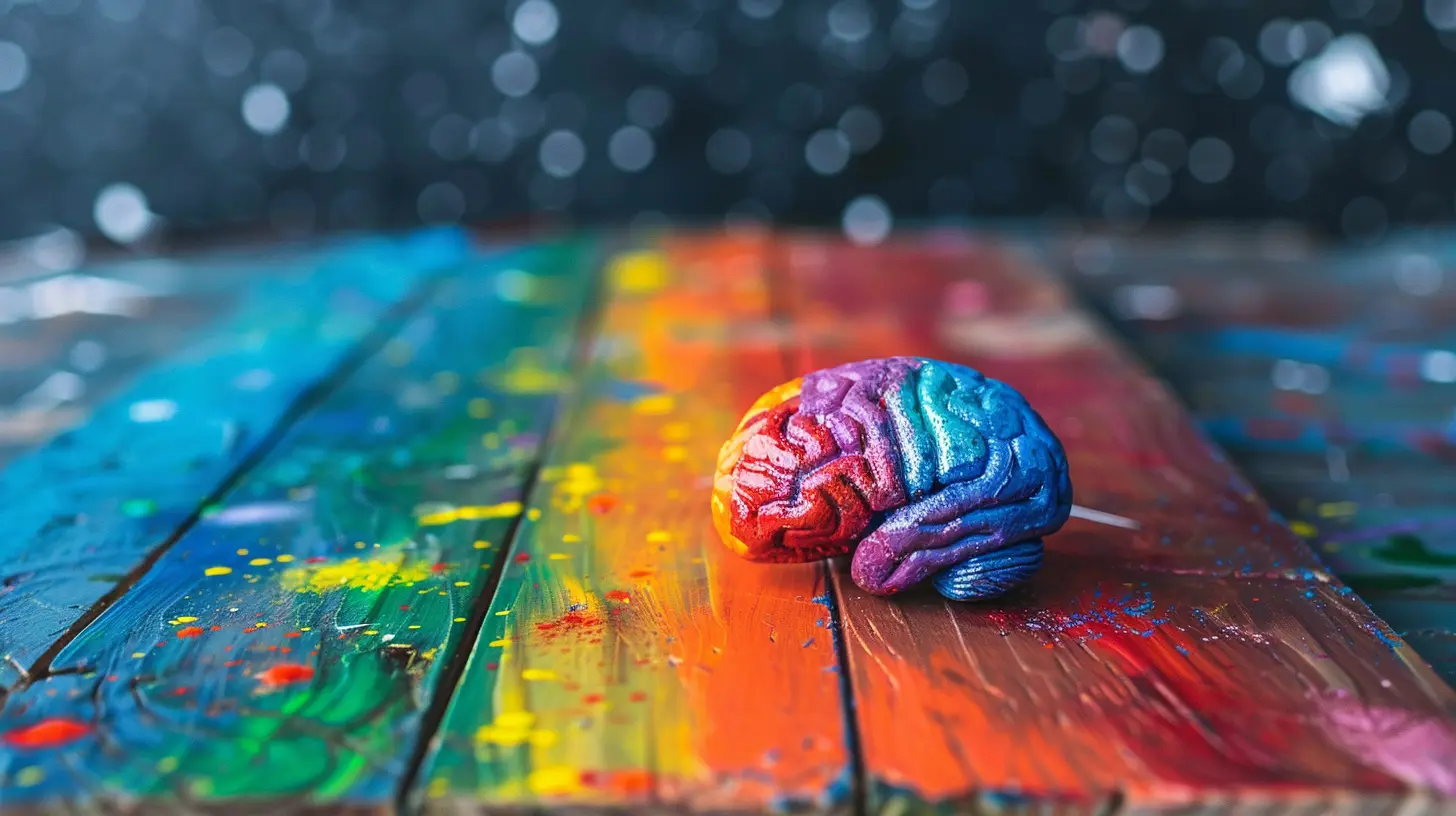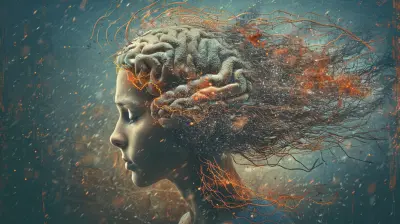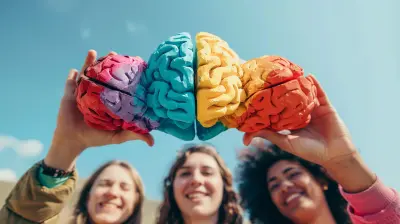The Role of Altruism in Mental Well-Being
4 October 2025
Let’s talk about something that makes us feel genuinely good — helping others. Whether it’s paying for a stranger’s coffee, donating to a cause you care about, or simply lending an ear to a friend going through a hard time, these moments of kindness carry more weight than we often realize. Behind every selfless act lies something powerful for your own mind and soul: better mental health.
In this article, we’ll dive deep into the role of altruism in mental well-being. We’re going to unpack how helping others helps us too. And no, this isn’t just fluffy feel-good talk — it's backed by science, personal stories, and some real-world insights. Ready to find out how giving can heal? Let’s go!
What Is Altruism, Anyway?
Before we jump into the feel-good details, let’s clarify the star of our show: altruism.Altruism is doing something kind for someone else without expecting anything in return. No payback. No praise. No social points. Just pure, unfiltered good.
It could be as small as holding the door for someone or as huge as dedicating your life to humanitarian work. The common thread? It's all about other people — not us.
But here’s the twist: it actually helps us too. Weird, right? How can focusing on others improve our own mental well-being?
Let’s break it down.
Altruism And The Brain: What Science Says
You know that warm, fuzzy feeling you get when you help someone? That’s not just guilt leaving your body (as some jokes go). It’s your brain dishing out a little reward.The “Helper’s High”
Helping others triggers the release of feel-good chemicals in your brain — mainly dopamine, serotonin, and oxytocin. Together, these chemicals create what’s often called the “helper’s high.”Ever hear a runner talk about their high after jogging 10 miles? Same idea here. You're not running on a treadmill, but your brain is still rewarding you. Helping someone can literally light up the same parts of your brain that activate when you’re enjoying a delicious meal or getting a hug.
Reduced Stress And Lower Cortisol
Altruistic behavior has been linked to lower levels of cortisol — the hormone responsible for stress. When you focus on others and their needs, you temporarily shift attention away from your own worries. Kindness acts like a pressure valve for stress.And get this: research shows that people who volunteer regularly or give support to others tend to have lower blood pressure and longer lifespans. So yes, kindness might just be the ultimate life hack.
Altruism And Mental Health: A Two-Way Street
Let’s get real — mental health is complicated. There’s no single fix. But here’s some good news: altruism can be a powerful tool in your mental well-being toolkit.Boosting Mood and Combating Depression
Ever been in a funk and decided to do something nice for someone anyway? Even if you had to drag yourself to do it, didn’t you feel slightly better afterward?That’s not a coincidence.
Acts of altruism help reduce symptoms of mild depression and anxiety. They create a sense of purpose and belonging — two things we all deeply crave, especially during low periods.
When you focus on giving to others, you shift away from rumination (you know, that mental cycle where your brain won’t stop replaying the same negative loop). Helping others breaks that cycle. It gives your mind something constructive to do.
Building Meaning and Self-Worth
Let’s face it — we all want to feel like we matter. And when you support someone, even in the smallest way, it reinforces that you have value.Altruism helps you step into roles that show you your strength — the caregiver, the listener, the supporter, the leader. These identities build your self-worth and help you develop a deeper sense of meaning in life.
And people with purpose? They tend to be happier, more resilient, and mentally stronger overall.
Altruism in Relationships: The Glue That Holds Us Together
Humans are social creatures. We thrive in communities — not just because of shared resources or survival, but because emotional connection is vital to our health.Kindness Builds Connection
Acts of kindness don’t just lift the mood of the person receiving them. They also strengthen the bond between people. Whether it's family, friends, coworkers, or strangers — altruism creates bridges.Stronger relationships are one of the most protective factors for mental well-being. They help reduce feelings of isolation, boost emotional support, and give us a sense of being seen and understood.
Imagine kindness as emotional glue. Every thoughtful gesture is like adding a drop of adhesive between two people. Over time, those drops add up, making that bond stronger than ever.
The Ripple Effect: How Your Kindness Spreads
Here’s the really cool part: altruism is contagious.When you help someone, there's a good chance they’ll pay it forward. Your small act could spark a ripple effect — one that influences people far beyond what you’ll ever see.
Think of it like tossing a pebble into a pond. The ripples fan out and touch distant shores. You might help one person today, but the waves your kindness creates can change someone else’s tomorrow.
And you know what’s awesome about that? It deeply satisfies our need to feel impactful. Knowing that we’ve made a difference — no matter how small — adds layers to our sense of identity and fulfillment.
Practicing Altruism in Everyday Life
Now, you might be thinking, “I’d love to help more, but life is busy.” Totally understandable. You don’t have to make grand gestures to make a difference (although those are great too).Here are some simple ways to weave altruism into your daily routine:
1. Listen Without Interrupting
Seriously, when was the last time you gave someone your full attention — no phone, no multitasking? Active listening is one of the most generous, respectful things you can do.2. Offer a Compliment
Sounds basic, but genuine compliments can brighten someone’s day more than you know. Try giving one every day.3. Volunteer Your Time or Skills
Whether it’s helping out at a shelter, tutoring students, or even creating helpful content online — find a way to give that aligns with your personality and passions.4. Donate (Even Small Amounts)
You don’t need to give a fortune. Even small donations can make a big impact — and you'll feel good doing it.5. Show Up for Someone
Send that “thinking of you” text. Drive someone to an appointment. Sit with them through a hard moment. These gestures don’t cost money — just love, presence, and a bit of time.When Altruism Backfires: Watch Out for Burnout
Let’s address the elephant in the room: yes, altruism is amazing. But overdoing it? Not so much.There’s a difference between healthy giving and self-sacrificing to the point it drains you. It’s called altruistic burnout — where your well dries up because you’re always pouring into others without refilling your own cup.
Signs You Might Be Overdoing It:
- Chronic fatigue or feeling emotionally numb- Irritability, resentment, or guilt
- Neglecting your own needs consistently
- Feeling used or unappreciated
Altruism should be fulfilling, not depleting. It’s okay — necessary even — to set boundaries. Think of it like oxygen masks on an airplane: you’ve got to take care of yourself first to help others effectively.
Final Thoughts: Kindness Is a Win-Win
At the end of the day, being kind isn’t just good for the world — it’s good for you. Altruism gives your brain a happiness boost, helps reduce stress, builds stronger relationships, and adds rich layers of meaning to life.And the best part? It doesn’t take much. A smile. A kind word. A listening ear. These are the small things that knit together a healthier society — and a healthier you.
So the next time you’re feeling down or stuck in your own head, try shifting focus. Look outward. Lend a hand. You might be surprised by how much better you feel.
Helping others might just be the most underrated form of self-care out there.
all images in this post were generated using AI tools
Category:
PsychologyAuthor:

Gloria McVicar
Discussion
rate this article
1 comments
Aubrey McKeehan
This article beautifully highlights how altruism not only benefits others but also significantly enhances our own mental well-being, fostering connections and promoting a sense of purpose.
October 23, 2025 at 2:38 AM

Gloria McVicar
Thank you for your insightful comment! I'm glad you found the article's message about the reciprocal benefits of altruism resonant.


